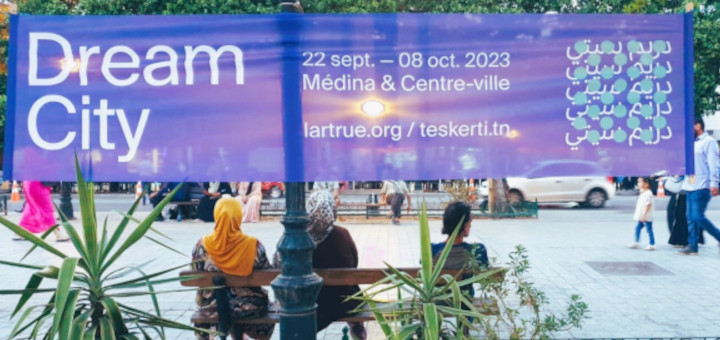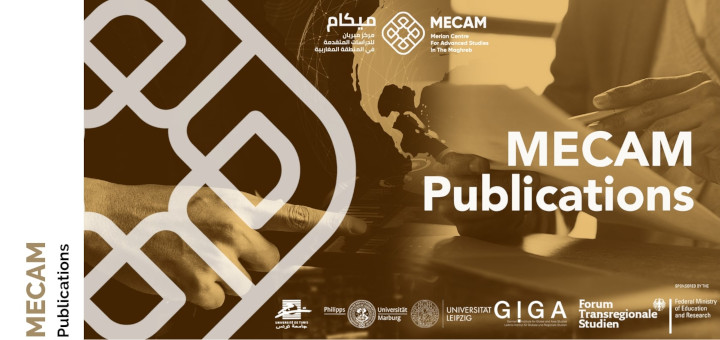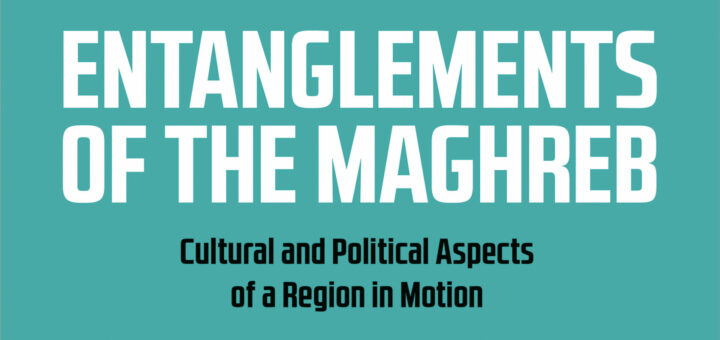#MECAM Series
L’espace #MECAM sur le TRAFO – Blog pour la recherche transrégionale du Forum Transregionale Studien, organisé en coopération avec la Max Weber Stiftung – Deutsche Geisteswissenschaftliche Institute im Ausland, est un débouché permanent pour la communication scientifique de MECAM. Il présente des contributions (essais, articles, interviews, conversations, annonces et rapports d’événements, critiques de livres) liées au thème directeur de MECAM, ainsi qu’à ses cinq IRF et à ses activités académiques.
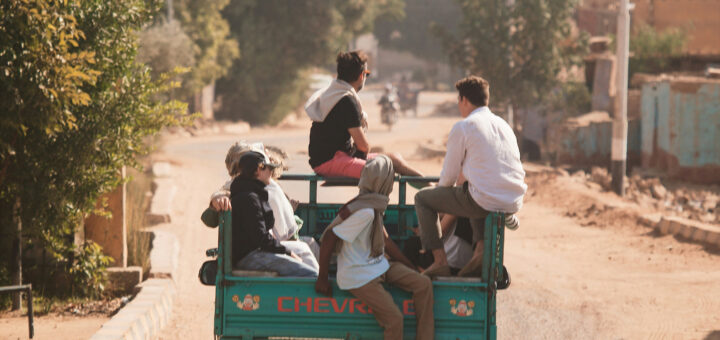
Publié le 2 juillet 2025 · Mis à jour le 30 juin 2025
Hayet Amamou in Conversation with Julius Dihstelhoff. Prof. Amamou argues that precolonial patterns of mobility—not rigid territoriality—forged the Maghreb’s identity. Her work challenges modern narratives of exclusion, insisting that historical connectivity, not isolation, holds the key to reimagining the region’s future. Amamou’s work aligns with MECAM’s mission to “imagine futures” by confronting historical erasures. Her keynote underscored that the Maghreb’s precolonial mobility was “a negotiated order, not chaos”—one that offers alternatives to today’s exclusionary policies.
=>TRAFO – Blog for Transregional Research of the Forum Transregionale Studien
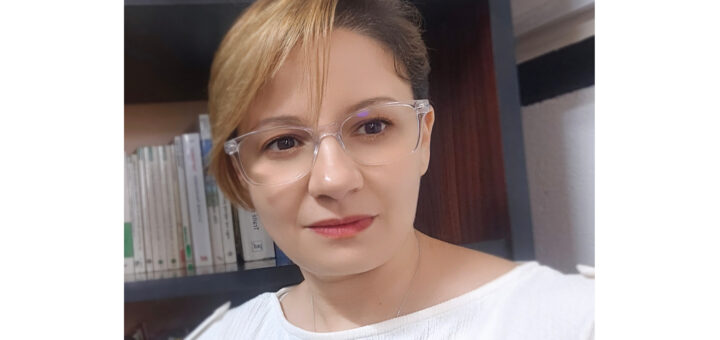
Publié le 29 Mai 2025
Khadidja Boussaïd holds a Ph.D. in Urban Sociology from the University of Algiers 2 and is a senior researcher at CREAD (Research Center for Applied Economics for Development). She is part of a research team focused on the socio-economic dynamics of families, with a particular emphasis on the transformations of gender identities within Algerian households, but also focusing on the issue of Gender inequalities to access to public space. She is a short-term fellow at MECAM (Merian Centre for advanced studies in the Maghreb, Tunis University), where she is conducting a study about urban public space and its reading through masculinities in a North African context. Khadidja Boussaïd is accredited to supervise research (HDR) and is a member of the LASADET Laboratory (Socio-Anthropological Analysis of Territorial Development). She is also an associate member of the Gender Studies Center (CEG) at the University of Lausanne, contributing to research on the intersection of gender, space, and power.
=>TRAFO – Blog for Transregional Research of the Forum Transregionale Studien
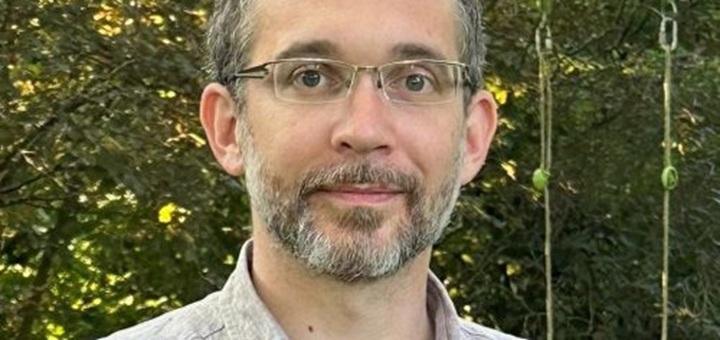
Publié le 10 Avril 2025
Dr. Thomas Serres’ research spans the field of Middle Eastern studies, critical security studies, and comparative politics, combining an ethnographic approach with a conceptual apparatus inspired by critical theory. He is particularly interested in the effects of protracted and entangled crises (popular uprisings, “war on terror,” refugee crisis, neoliberalization) in North Africa and beyond. His first book, The Suspended Disaster: Governance by Catastrophization in Bouteflika’s Algeria, was published in 2023 with Columbia University Press, expanding on a French edition initially released in 2019. He also co-edited the volume North Africa and the Making of Europe with Bloomsbury Publishing (2018).
=>TRAFO – Blog for Transregional Research of the Forum Transregionale Studien

Publié le 08 Mai 2025
Fabrizio Leonardo Cuccu is a Alumni Research Fellow at the Merian Centre for Advanced Studies in the Maghreb (MECAM), Tunisia and a Research Assistant at the School of Law and Government, Dublin City University, Ireland. His research focuses on security, development and migration policies in postcolonial settings. He has published articles in the Cambridge Review of International Affairs, L’Année du Maghreb and Surveillance & Society.
=>TRAFO – Blog for Transregional Research of the Forum Transregionale Studien
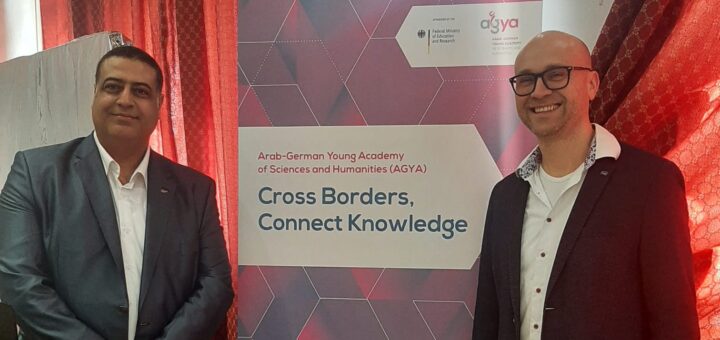
Publié le 15 Mai 2025
Clara-Auguste Süß in Conversation with Anis Ben Amor and Christian Junge. On 19 November 2024, MECAM hosted a Rencontre Ibn Khaldun in Arabic, an event format designed to share research findings with the wider public and foster open, inclusive debate. The event was organized in cooperation with the Arab-German Young Academy of Sciences and Humanities (AGYA). Dr. Christian Junge and Dr. Anis Ben Amor led a discussion on Arabic Studies in 21st-century Germany. They presented their collaborative translation project of the German-language textbook “Arabistik. Eine literatur- und kulturwissenschaftliche Einführung” (English: Arabic Studies: An Introduction to Literary and Cultural Studies”) and highlighted approaches, methodologies and challenges in the field.
=>TRAFO – Blog for Transregional Research of the Forum Transregionale Studien
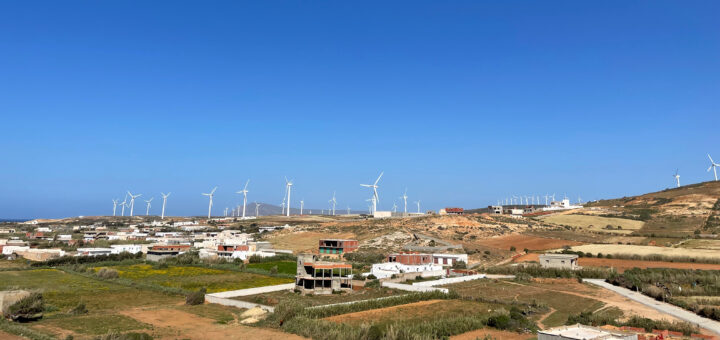
Publié le 25 Mars 2025
By Philipp Wagner. Energy transitions have become a key process around the globe to decarbonise economies in response to climate change. Structural transformations such as the expansion of renewable energy infrastructures are not free of conflict since they are deeply entangled with questions of distribution, access, and participation. To illustrate this, the following essay aims to intervene in the debate on renewable energy partnerships between the EU and Maghreb states with concrete policy evaluations and recommendations. It aims to unravel the forms of participation and political exclusions in these processes: What is at stake is the place of local communities and citizens in the energy transitions of the Maghreb.
=>TRAFO – Blog for Transregional Research of the Forum Transregionale Studien
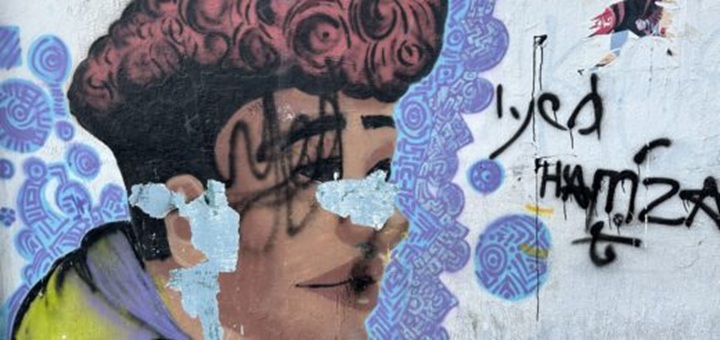
Publié le 11 Mars 2025
By Nora Lafi. Reflecting on the role of women under colonialism crucially contributes to debates on how to write the history thereof in contemporary Tunisia. Based on a corpus of original archives relating to French repression of women designated “rebels,” it is shown how a focus on women’s agency makes it possible to write the history of colonisation differently and to cast issues of memory in a new light.
=>TRAFO – Blog for Transregional Research of the Forum Transregionale Studien
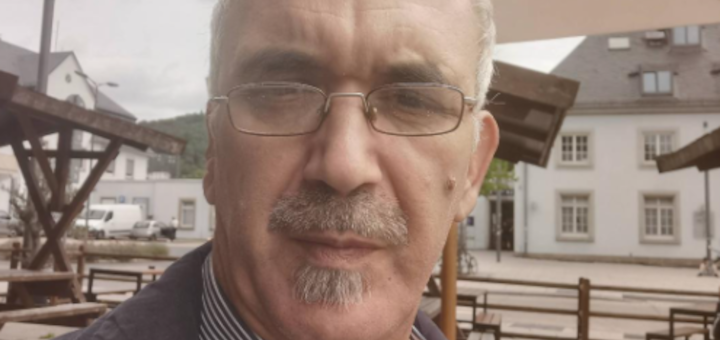
Publié le 27 Février 2025
Diplômé de l’Institut National de la Planification et de la Statistique (INPS) d’Alger et de l’université Lyon 2, Samir Bellal a enseigné dans de nombreuses universités en Algérie. Actuellement, il exerce en qualité de professeur d’économie à l’université Mouloud Mammeri de Tizi-Ouzou. Il a publié, fin 2017, « La crise du régime rentier – essai sur une Algérie qui stagne », paru aux éditions Frantz-Fanon, et en 2022, aux éditions El-Amel, « Rente, populisme et question économique en Algérie – réflexions sur un système en crise ».
=>TRAFO – Blog for Transregional Research of the Forum Transregionale Studien
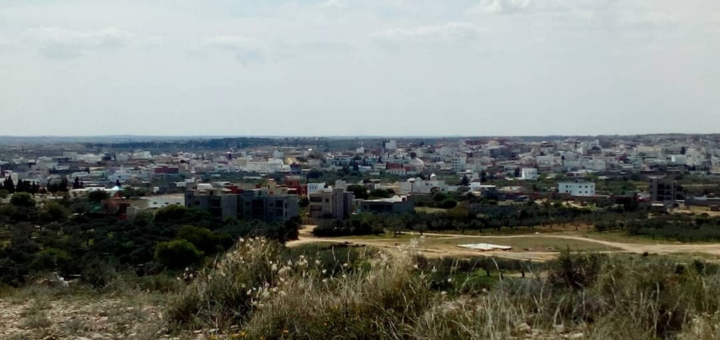
Publié le 28 Janvier 2025
By Cyrine Kortas. “Akouda 1943” is the third novel by Tunisian writer Houayda Ben Halima, published in 2017. The story takes place in the author’s hometown during World War II, when Tunisia was a battleground between Axis and Allied forces. Through her unique storytelling that merges history and fiction, Ben Halima informs readers about wartime politics while evoking deep emotional responses through well-developed characters and historical research to reflect on the human condition in times of conflict. For readers seeking a deep dive into the complexities of war through an engaging narrative lens, the novel offers a compelling experience that remains relevant today.
=>TRAFO – Blog for Transregional Research of the Forum Transregionale Studien
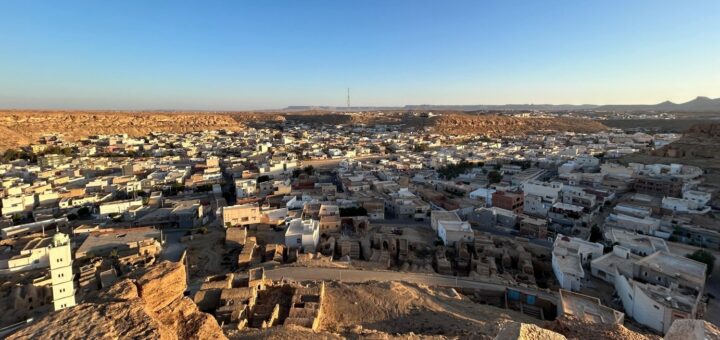
Publié le 2 Janvier 2025
By Nessrine Abbasi. Tunisia faces the pressing challenge of building a democratic system that addresses deep-rooted social and economic inequalities. Nessrine Abbassi, an expert in regional development economics, sheds light on the disparities between the coastal regions and the country’s south, particularly the Southeast. This region grapples with marginalization, unemployment, and poverty—issues exacerbated by inadequate development strategies. Abbassi emphasizes that sustainable development is achievable only through territorial approaches that consider the unique needs and characteristics of each region.
=>TRAFO – Blog for Transregional Research of the Forum Transregionale Studien

Publié le 17 décembre 2024
In this conversation, German political scientist and authoritarianism researcher André Bank speaks with Julius Dihstelhoff, MECAM’s Academic Coordinator, about the current state of academic freedom in Germany. Banks reflects on how historical developments of academic freedom have shaped the present landscape of higher education and emphasizes the importance of safeguarding these freedoms to foster a dynamic and diverse academic environment. He also addresses the ongoing challenges faced by scholars and institutions, including political pressures and social changes that impact academic discourse and inquiry.
=>TRAFO – Blog for Transregional Research of the Forum Transregionale Studien
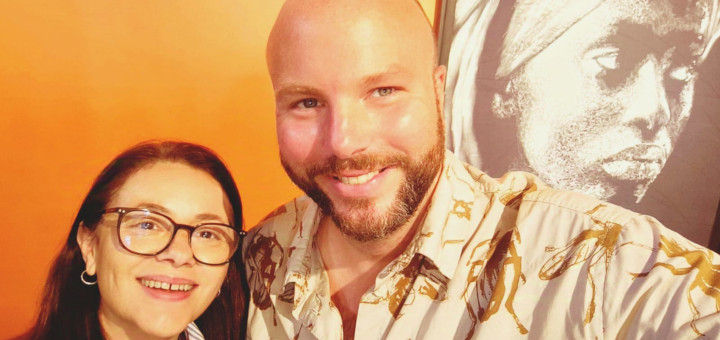
Publié le 28 novembre 2024
In this conversation, Emna Beltaief, Vice President of the Université de Tunis, speaks with Julius Dihstelhoff, MECAM’s Academic Coordinator, on the state of academic freedom in Tunisia. They explore the historical trajectory from the Bourguiba and Ben Ali regimes to the post-2011 era, discussing the persistent tensions between academic freedom and political pressures. Emna Beltaïef emphasizes the urgent need to protect academic spaces from political interference to ensure a thriving, critical academic environment.
=>TRAFO – Blog for Transregional Research of the Forum Transregionale Studien

Publié le 21 novembre 2024
Hala Ben Mbarek est maître de conférences en langue et littérature hébraïques modernes au Département d’études arabes de l’Université de Tunis. Ses recherches portent sur la littérature hébraïque et comparée, la contribution des genres populaires à la construction des identités juives modernes, et les littératures comparées arabe-hébraïque modernes, le multilinguisme en Afrique du Nord et au Moyen-Orient.
=>TRAFO – Blog for Transregional Research of the Forum Transregionale Studien
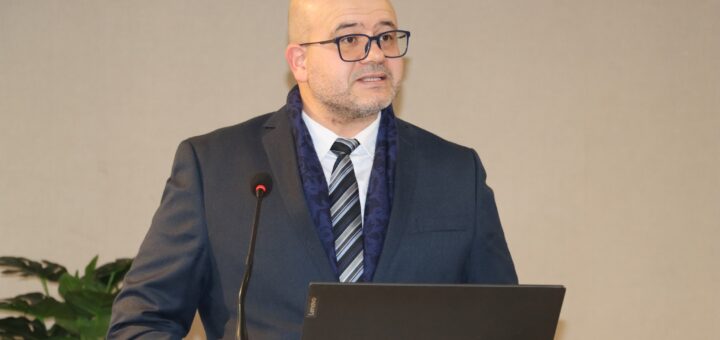
Publié le 7 novembre 2024
Riadh Ben Khalifa Riadh Ben Khalifa is an associate Professor of Contemporary History at the University of Tunis. His research interests focus on migration, asylum, and mobility in transitional contexts. Over the past decade, he published several books and articles in refereed journals as well as contributed to numerous chapters in collective works. He also made contributions to reports on migration and refugee issues for international organizations.
=>TRAFO – Blog for Transregional Research of the Forum Transregionale Studien
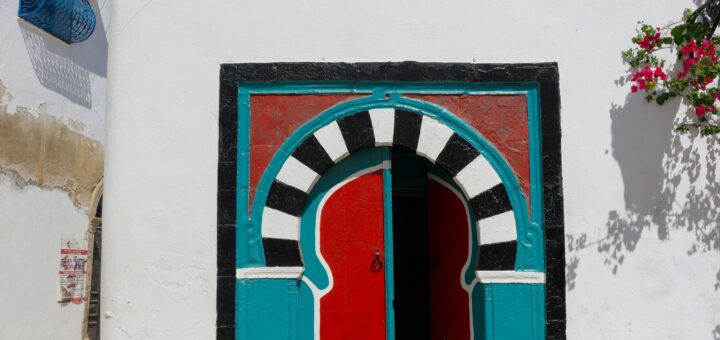
Publié le 29 octobre 2024
By Najla Mosbahi. Asfour Stah (also known as Halfaouine: Boy of the Terraces) is a film that explores the complexities of Tunisian society in the early 1990s. At this time, Tunisia was undergoing significant social change, grappling with the legacy of Habib Bourguiba’s progressive reforms that had improved women’s rights. However, despite these advancements, traditional gender roles remained deeply entrenched, creating a complex landscape for women. With the film, director Férid Boughedir aimed at revealing “the hidden struggles of women in a society that often silences their voices, showcasing their strength and resilience within the constraints imposed by tradition”.
=>TRAFO – Blog for Transregional Research of the Forum Transregionale Studien
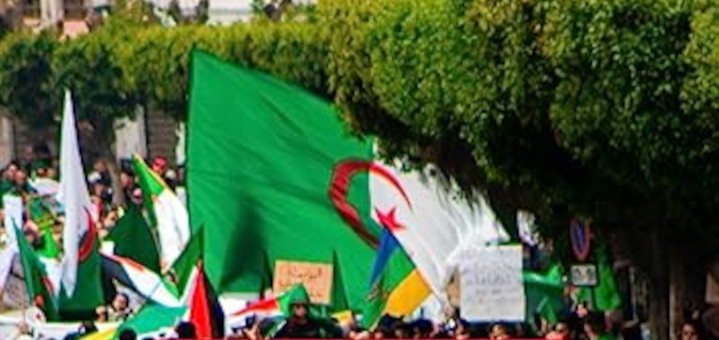
Publié le 10 octobre 2024
Nessim Znaien is a Junior Professor at the University of Marburg, holding the (Post)colonial Maghreb Chair since April 2022. After studying history in Lyon and Paris, he defended a doctoral thesis at the University of Paris I Panthéon Sorbonne in September 2017, entitled “Les raisins de la domination. Histoire sociale de l’alcool dans la Tunisie du Protectorat (1881-1956)”. Nessim Znaien is one of the editors of the journal l’Année du Maghreb. He conducts research on the history of material culture in the colonial and post-colonial Maghreb, in particular on the history of food and cereals. A Conversation with Diana Abbani.
=>TRAFO – Blog for Transregional Research of the Forum Transregionale Studien

Publié le 19 Septembre 2024
By Mohamed Ismail Sabry. In the post-2011 Revolution years, ideological polarisation and political instability weakened the Tunisian state, freeing much space for business tycoons to largely dominate the political realm. Such “state capture” had a deep impact on the enactment and/or implementation of various policies that would significantly affect inclusive and sustainable growth. After 2011, tycoons benefitted from the lax and discretionary implementation of policies.
=>TRAFO – Blog for Transregional Research of the Forum Transregionale Studien
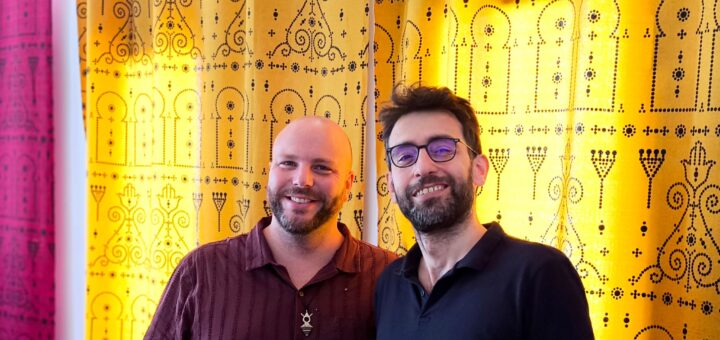
Publié le 19 Septembre 2024
Reflecting on his methodological approach to researching Hamas and Ennahda during his recent fellowship with MECAM, Palestinian political scientist Imad Alsoos, in this conversation with Julius Dihstelhoff, explores how the intersection of symbolic power and social consent shapes the legitimacy of these movements. He emphasizes the role of embedded social practices in gaining public support for political authority.
=>TRAFO – Blog for Transregional Research of the Forum Transregionale Studien
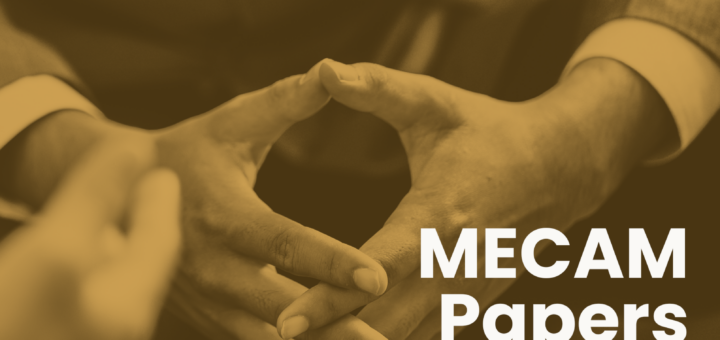
Publié le 29 Aout 2024
By Julius Dihstelhoff, Rachid Ouaissa, and Thomas Richter. The Maghreb has been shaped and influenced by external powers and forces throughout most phases of its recent history. As a vibrant space in motion, this world region is only at the beginning of a long process of carving out its own future autonomous role. Historically, the Maghreb has faced internal tensions due to acute disparities and complex external interlinkages with surrounding regions. These tensions are crucial for understanding contemporary transformation processes and future dynamics.
=>TRAFO – Blog for Transregional Research of the Forum Transregionale Studien
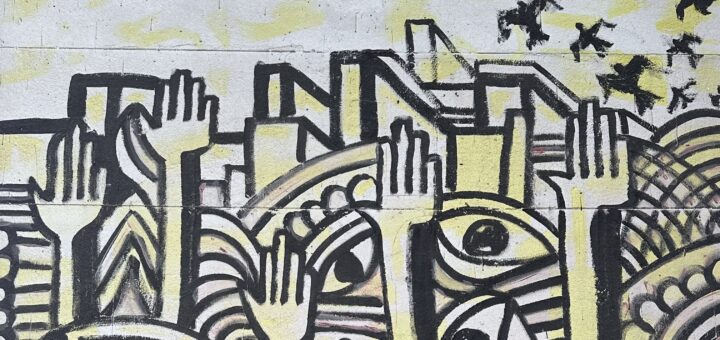
Publié le 16 Juillet 2024
L’écrivaine syrienne Rasha Abbas et l’artiste palestinien Muhammad Jabali, en conversation avec Diana Abbani, discutent de l’évolution des dynamiques et des récits qui façonnent Berlin, une ville autrefois considérée comme un centre culturel arabe. En explorant la manière dont le paysage culturel de Berlin a été influencé par les migrations, les politiques identitaires et les récents changements politiques, ils soulignent la nécessité de faire preuve d’imagination et d’adopter des approches réalistes pour créer des villes plus agréables à vivre.
=>TRAFO – Blog for Transregional Research of the Forum Transregionale Studien

Publié le 27 Juin 2024
In this article, Cyrine Kortas reviews the Tunisian writer Faten Fazaa’s book “Hysteria”. Written in Tunisian dialect and focusing on the everyday struggles of an ordinary woman from the old Medina, the book is labeled as Tunisian chick lit, a new literary genre that has flourished. Offering a glimpse into the lives of Tunisian young women, she addresses social and political issues while questioning cultural norms. By means of this novel Cyrine Kortas examines the topic of female gender identity negotiation in a Muslim society on the eve of the Arab Spring era.
=>TRAFO – Blog for Transregional Research of the Forum Transregionale Studien

Publié le 30 mai 2024
Tommaso Virgili is a Postdoctoral Research Fellow at the Migration, Integration, Transnationalization Department of the WZB Berlin Social Science Center and a Research Associate at the Wilfried Martens Centre for European Studies in Brussels. At the WZB, he works on Islamism and liberal Islam in connection with individual rights, with a focus on Europe and the MENA region. Tommaso holds a Ph.D. in Comparative Public Law and a Master’s degree in Law from Sant’Anna School of Advanced Studies in Pisa and a Master of Arts in Middle East and Islamic Studies with Arabic from the American University of Paris and Cairo.
=>TRAFO – Blog for Transregional Research of the Forum Transregionale Studien
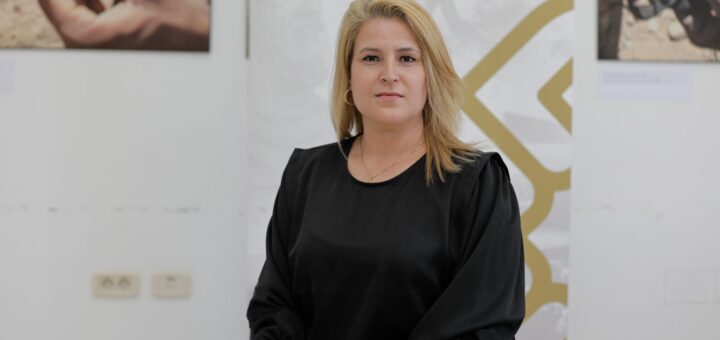
Publié le 28 mai 2024
=>TRAFO – Blog for Transregional Research of the Forum Transregionale Studien
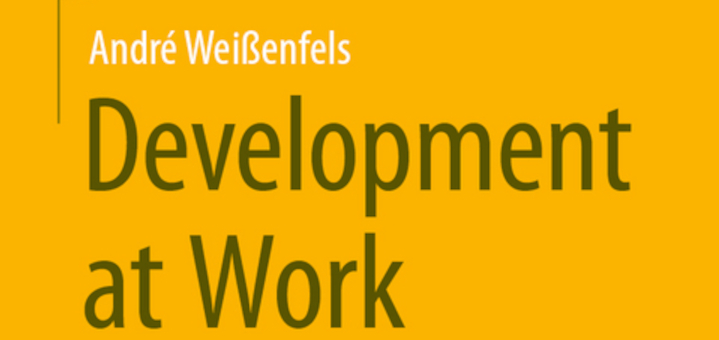
Publié le 9 mai 2024 – mis à jour le 7 mai 2024
=>TRAFO – Blog for Transregional Research of the Forum Transregionale Studien
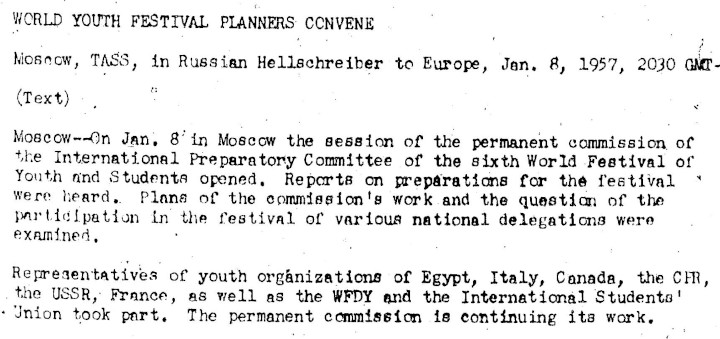
Publié le 16 Avril 2024
Elizabeth Bishop est professeur associé d’histoire à la Texas State University-San Marcos. Ses recherches portent sur le monde arabe moderne, les médias et l’histoire matérielle. Dans cette conversation, Dianna Abbani discute avec elle de l’article “Arabs at the 6th World Festival of Youth and Students : UGEMA en URSS, 1957”.
=>TRAFO – Blog for Transregional Research of the Forum Transregionale Studien

Publié le 4 Avril 2024
Mourad Ouchichi est docteur en science politique, Diplômé de l’IEP de Lyon II. Actuellement enseignant chercheur à l’université de Béjaiai. Ses recherches s’articulent autour de la problématique de la Rente, la nature des institutions en lien avec le développement des pays extractives. Son axe privilégié est les études comparatives entre l’Algérie est les pays extractivistes de l’Amérique Latine.
=>TRAFO – Blog for Transregional Research of the Forum Transregionale Studien
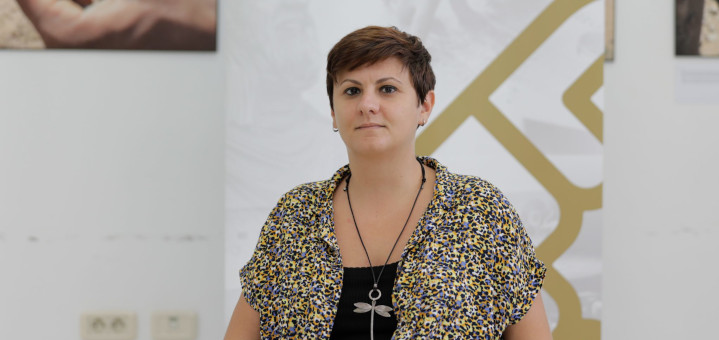
Publié le 4 Mars 2024
Alessia Carnevale holds a PhD in Civilizations of Asia and Africa from Sapienza University of Rome. Her doctoral thesis deals with Tunisian counter-culture and the ‘committed song’ of the 1970s-1980s. She previously graduated in Comparative Literatures and Cultures from the University of Naples l’Orientale. Her research explores the relations between culture and politics, issues of collective memories and (counter)narratives, and grassroots/top-down interventions in the cultural field.
=>TRAFO – Blog for Transregional Research of the Forum Transregionale Studien

Publié le 4 Mars 2024
Asma Helali est Maitre de conférences en islamologie à l’Université de Lille (France), elle a occupé plusieurs postes de recherche dans le monde arabe ainsi qu’en Europe et au Royaume-Uni. Ses recherches portent sur la transmission des textes religieux en Islam premier. Au sein de MECAM, le projet d’Asma Helali porte sur le dévoilement des croyances et identités religieuses: l’enseignement des textes religieux dans le milieu de Qayrawan au 11ème siècle. A. Helali est auteur de The Sanaa Palimpsest: The Transmission of the Qur’an in the First Centuries AH (Oxford University Press, 2017) et co-auteur avec Stephen R. Burge, de, The Making of Religious Texts in Islam: The Fragment and the Whole (Gerlach, 2019).
=>TRAFO – Blog for Transregional Research of the Forum Transregionale Studien

Publié le 13 Février 2024 – MIS À Jour le 13 Février 2024
Joshua Rigg est titulaire d’un doctorat en politique et études internationales de la School of Oriental and African Studies (SOAS), Université de Londres. Ses recherches portent sur les transformations sociopolitiques au Moyen-Orient et en Afrique du Nord, la politique de l’extractivisme, la pensée politique quotidienne et les séquelles de l’Afrique du Nord coloniale et postcoloniale. Il a précédemment écrit sur la compréhension quotidienne de la justice dans la Tunisie d’après le renversement, sur l’extractivisme et la marginalisation dans le sud de la Tunisie et sur la circulation de la pensée politique révolutionnaire dans l’espace méditerranéen.
=>TRAFO – Blog for Transregional Research of the Forum Transregionale Studien

Publié 9. Janvier 2024 – mis à jour 8. Janvier 2024
In this article, Steffen Wippel presents his newest book (De Gruyter, 2023) on communication strategies and image building employed by governments and corporations across the MENA region.
=>TRAFO – Blog for Transregional Research of the Forum Transregionale Studien
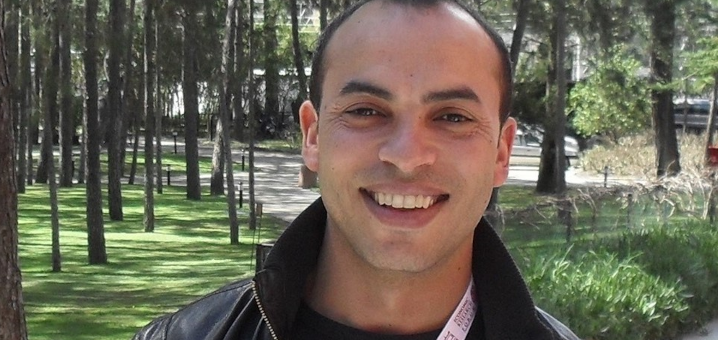
Publié le 28 décembre 2023 – mis à jour le 20 décembre 2023
Mohamed Amara a obtenu son master en modélisation économique à l’Institut supérieur de gestion de Tunis en 2004, avant d’entreprendre un doctorat en géographie à l’Université de Paris I et un doctorat en gestion (méthodes quantitatives) à l’Université de Tunis en 2010. Ses recherches portent sur l’économie du développement, les sciences régionales, le marché du travail, la jeunesse et le genre dans la région MENA, et la micro-économétrie appliquée. Il a publié dans de nombreuses revues sur des sujets variés tels que les Annals of Regional Science, Social Indicators Research, Annals of Economic and Statistics, Growth & Change, Papers in regional science, Middle East development Journal, et Letters in Spatial and Resource Sciences.
=>TRAFO – Blog for Transregional Research of the Forum Transregionale Studien
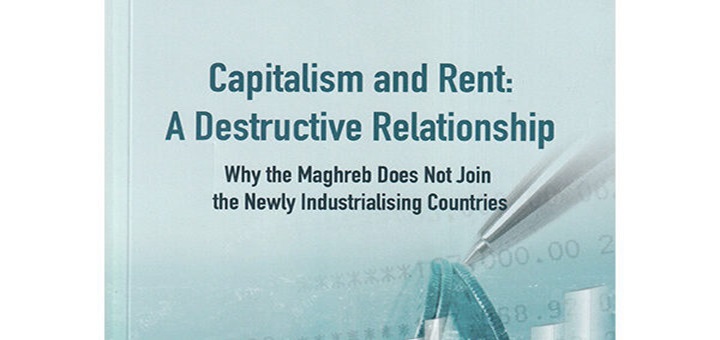
Par Rachid Ouaissa en conversation avec Hartmut Elsenhaus, Publié le 5
=>TRAFO – Blog for Transregional Research of the Forum Transregionale Studien
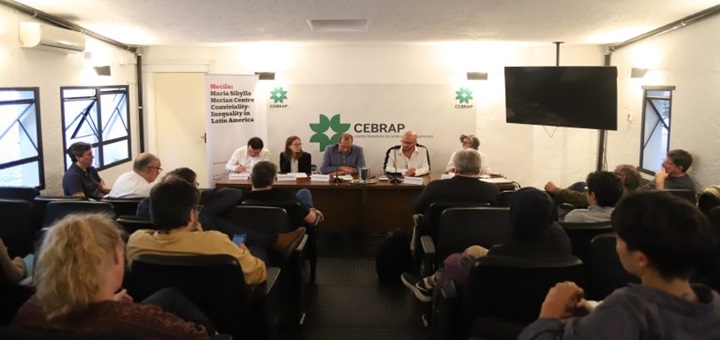
Par Julius Dihstelhoff et Tomaz Amorim, Publié le 28
Global academic collaboration is a dynamic field, where it is important to deal with inequalities and build connections between institutions from different regions. Recent discussions have shed light on these pivotal issues. Julius Dihstelhoff, Academic Coordinator of the Merian Centre for Advanced Studies in the Maghreb (MECAM) in Tunis/Tunisia, and Tomaz Amorim, Academic Coordinator of the Maria Sibylla Merian Centre Conviviality-Inequality in Latin America (MECILA), shared their reflections on these issues.
=>TRAFO – Blog for Transregional Research of the Forum Transregionale Studien
By Vanessa Barisch. What started out as an underground festival of cultural resistance against Tunisia’s former political regime, has evolved over 15 years into a globally prestigious cultural event in the heart of the historical centre of the country’s capital: The Dream City Festival.
=>TRAFO – Blog for Transregional Research of the Forum Transregionale Studien

Cyrine Kortas is a Tunisian postdoctoral fellow at MECAM centre, majored in English literature. She is an associate professor at the Higher Institute of Languages, Gabes, Tunisia and a researcher at the LAD lab unit at the faculty of arts and humanities Sfax. Her research interests include: comparative literature, feminist and gender studies, as well as teaching literature in EFL classrooms.
=>TRAFO – Blog for Transregional Research of the Forum Transregionale Studien
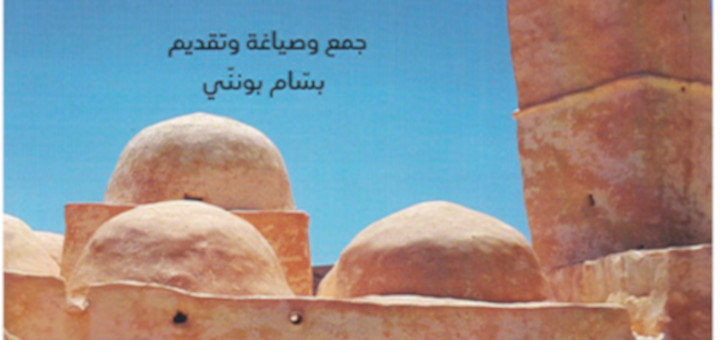
By Joshua E. Rigg. In Al-Janub Ya Kibdiyy (The South, My Dear Son; lit. The South, My Liver), Mohamed Bettaieb (b. 1985), offers an alternative vision. His work deals with everyday life in Tunisia’s south – its economy, culture, history and myth. Collected and edited by the journalist and North African correspondent, Bassam Bounenni, the book brings together a selection of Bettaieb’s satirical morality tales, comments on current events, personal memoir and confessions, and literary and philosophical discussions. A review.
=>TRAFO – Blog for Transregional Research of the Forum Transregionale Studien
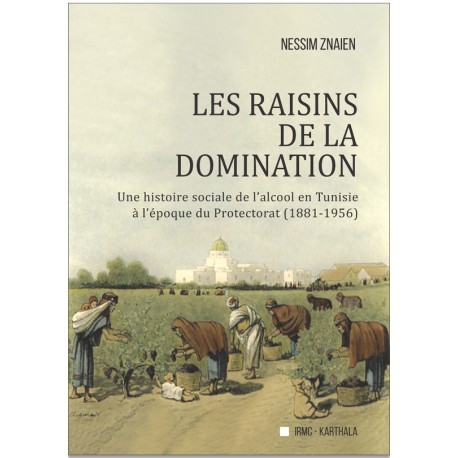
Nessim Znaien is a Junior Professor at the University of Marburg, holding the (Post)colonial Maghreb Chair since April 2022. After studying history in Lyon and Paris, he defended a doctoral thesis at the University of Paris I Panthéon Sorbonne in September 2017, entitled “Les raisins de la domination. Histoire sociale de l’alcool dans la Tunisie du Protectorat (1881-1956)”. To complete this thesis, Nessim Znaien was awarded a grant from the Institut de Recherche sur le Maghreb Contemporain (IRMC), a French research institute based in Tunis (2014-2017). He was also a lecturer at the University of Aix-Marseille (2017-2020). Nessim Znaien is one of the editors of the journal l’Année du Maghreb. He conducts research on the history of material culture in the colonial and post-colonial Maghreb, in particular on the history of food and cereals.
=>TRAFO – Blog for Transregional Research of the Forum Transregionale Studien
This interview with Professor Khaled Kchir, aims to unveil the significance of Ibn Khaldûn, whose influence, though profound, is often underestimated today. Professor Kchir sheds light on Ibn Khaldûn’s substantial impact in the past, his current importance, and his relevance as a model for the future.
=>TRAFO – Blog for Transregional Research of the Forum Transregionale Studien
Par Imen Louati and Julius Dihstelhoff. Cette anthologie vise à produire une nouvelle approche pour aborder les études régionales au Maghreb. En effet, saisir l’hétérogénéité du Maghreb et sa dynamique est essentiel pour réfléchir aux transformations récentes, non seulement au Maghreb mais dans le monde arabe en général, en particulier en relation avec les soulèvements arabes de 2010-11.
=>TRAFO – Blog for Transregional Research of the Forum Transregionale Studien

Publié le 28 novembre 2024
In this conversation, Emna Beltaief, Vice President of the Université de Tunis, speaks with Julius Dihstelhoff, MECAM’s Academic Coordinator, on the state of academic freedom in Tunisia. They explore the historical trajectory from the Bourguiba and Ben Ali regimes to the post-2011 era, discussing the persistent tensions between academic freedom and political pressures. Emna Beltaïef emphasizes the urgent need to protect academic spaces from political interference to ensure a thriving, critical academic environment.
=>TRAFO – Blog for Transregional Research of the Forum Transregionale Studien

Publié le 21 novembre 2024
Hala Ben Mbarek est maître de conférences en langue et littérature hébraïques modernes au Département d’études arabes de l’Université de Tunis. Ses recherches portent sur la littérature hébraïque et comparée, la contribution des genres populaires à la construction des identités juives modernes, et les littératures comparées arabe-hébraïque modernes, le multilinguisme en Afrique du Nord et au Moyen-Orient.
=>TRAFO – Blog for Transregional Research of the Forum Transregionale Studien

Publié le 7 novembre 2024
Riadh Ben Khalifa Riadh Ben Khalifa is an associate Professor of Contemporary History at the University of Tunis. His research interests focus on migration, asylum, and mobility in transitional contexts. Over the past decade, he published several books and articles in refereed journals as well as contributed to numerous chapters in collective works. He also made contributions to reports on migration and refugee issues for international organizations.
=>TRAFO – Blog for Transregional Research of the Forum Transregionale Studien

Publié le 29 octobre 2024
By Najla Mosbahi. Asfour Stah (also known as Halfaouine: Boy of the Terraces) is a film that explores the complexities of Tunisian society in the early 1990s. At this time, Tunisia was undergoing significant social change, grappling with the legacy of Habib Bourguiba’s progressive reforms that had improved women’s rights. However, despite these advancements, traditional gender roles remained deeply entrenched, creating a complex landscape for women. With the film, director Férid Boughedir aimed at revealing “the hidden struggles of women in a society that often silences their voices, showcasing their strength and resilience within the constraints imposed by tradition”.
=>TRAFO – Blog for Transregional Research of the Forum Transregionale Studien

Publié le 10 octobre 2024
Nessim Znaien is a Junior Professor at the University of Marburg, holding the (Post)colonial Maghreb Chair since April 2022. After studying history in Lyon and Paris, he defended a doctoral thesis at the University of Paris I Panthéon Sorbonne in September 2017, entitled “Les raisins de la domination. Histoire sociale de l’alcool dans la Tunisie du Protectorat (1881-1956)”. Nessim Znaien is one of the editors of the journal l’Année du Maghreb. He conducts research on the history of material culture in the colonial and post-colonial Maghreb, in particular on the history of food and cereals. A Conversation with Diana Abbani.
=>TRAFO – Blog for Transregional Research of the Forum Transregionale Studien

Publié le 19 Septembre 2024
By Mohamed Ismail Sabry. In the post-2011 Revolution years, ideological polarisation and political instability weakened the Tunisian state, freeing much space for business tycoons to largely dominate the political realm. Such “state capture” had a deep impact on the enactment and/or implementation of various policies that would significantly affect inclusive and sustainable growth. After 2011, tycoons benefitted from the lax and discretionary implementation of policies.
=>TRAFO – Blog for Transregional Research of the Forum Transregionale Studien

Publié le 19 Septembre 2024
Reflecting on his methodological approach to researching Hamas and Ennahda during his recent fellowship with MECAM, Palestinian political scientist Imad Alsoos, in this conversation with Julius Dihstelhoff, explores how the intersection of symbolic power and social consent shapes the legitimacy of these movements. He emphasizes the role of embedded social practices in gaining public support for political authority.
=>TRAFO – Blog for Transregional Research of the Forum Transregionale Studien

Publié le 29 Aout 2024
By Julius Dihstelhoff, Rachid Ouaissa, and Thomas Richter. The Maghreb has been shaped and influenced by external powers and forces throughout most phases of its recent history. As a vibrant space in motion, this world region is only at the beginning of a long process of carving out its own future autonomous role. Historically, the Maghreb has faced internal tensions due to acute disparities and complex external interlinkages with surrounding regions. These tensions are crucial for understanding contemporary transformation processes and future dynamics.
=>TRAFO – Blog for Transregional Research of the Forum Transregionale Studien

Publié le 16 Juillet 2024
L’écrivaine syrienne Rasha Abbas et l’artiste palestinien Muhammad Jabali, en conversation avec Diana Abbani, discutent de l’évolution des dynamiques et des récits qui façonnent Berlin, une ville autrefois considérée comme un centre culturel arabe. En explorant la manière dont le paysage culturel de Berlin a été influencé par les migrations, les politiques identitaires et les récents changements politiques, ils soulignent la nécessité de faire preuve d’imagination et d’adopter des approches réalistes pour créer des villes plus agréables à vivre.
=>TRAFO – Blog for Transregional Research of the Forum Transregionale Studien

Publié le 27 Juin 2024
In this article, Cyrine Kortas reviews the Tunisian writer Faten Fazaa’s book “Hysteria”. Written in Tunisian dialect and focusing on the everyday struggles of an ordinary woman from the old Medina, the book is labeled as Tunisian chick lit, a new literary genre that has flourished. Offering a glimpse into the lives of Tunisian young women, she addresses social and political issues while questioning cultural norms. By means of this novel Cyrine Kortas examines the topic of female gender identity negotiation in a Muslim society on the eve of the Arab Spring era.
=>TRAFO – Blog for Transregional Research of the Forum Transregionale Studien

Publié le 30 mai 2024
Tommaso Virgili is a Postdoctoral Research Fellow at the Migration, Integration, Transnationalization Department of the WZB Berlin Social Science Center and a Research Associate at the Wilfried Martens Centre for European Studies in Brussels. At the WZB, he works on Islamism and liberal Islam in connection with individual rights, with a focus on Europe and the MENA region. Tommaso holds a Ph.D. in Comparative Public Law and a Master’s degree in Law from Sant’Anna School of Advanced Studies in Pisa and a Master of Arts in Middle East and Islamic Studies with Arabic from the American University of Paris and Cairo.
=>TRAFO – Blog for Transregional Research of the Forum Transregionale Studien

Publié le 28 mai 2024
=>TRAFO – Blog for Transregional Research of the Forum Transregionale Studien

Publié le 9 mai 2024 – mis à jour le 7 mai 2024
=>TRAFO – Blog for Transregional Research of the Forum Transregionale Studien

Publié le 16 Avril 2024
Elizabeth Bishop est professeur associé d’histoire à la Texas State University-San Marcos. Ses recherches portent sur le monde arabe moderne, les médias et l’histoire matérielle. Dans cette conversation, Dianna Abbani discute avec elle de l’article “Arabs at the 6th World Festival of Youth and Students : UGEMA en URSS, 1957”.
=>TRAFO – Blog for Transregional Research of the Forum Transregionale Studien

Publié le 4 Avril 2024
Mourad Ouchichi est docteur en science politique, Diplômé de l’IEP de Lyon II. Actuellement enseignant chercheur à l’université de Béjaiai. Ses recherches s’articulent autour de la problématique de la Rente, la nature des institutions en lien avec le développement des pays extractives. Son axe privilégié est les études comparatives entre l’Algérie est les pays extractivistes de l’Amérique Latine.
=>TRAFO – Blog for Transregional Research of the Forum Transregionale Studien

Publié le 4 Mars 2024
Alessia Carnevale holds a PhD in Civilizations of Asia and Africa from Sapienza University of Rome. Her doctoral thesis deals with Tunisian counter-culture and the ‘committed song’ of the 1970s-1980s. She previously graduated in Comparative Literatures and Cultures from the University of Naples l’Orientale. Her research explores the relations between culture and politics, issues of collective memories and (counter)narratives, and grassroots/top-down interventions in the cultural field.
=>TRAFO – Blog for Transregional Research of the Forum Transregionale Studien

Publié le 4 Mars 2024
Asma Helali est Maitre de conférences en islamologie à l’Université de Lille (France), elle a occupé plusieurs postes de recherche dans le monde arabe ainsi qu’en Europe et au Royaume-Uni. Ses recherches portent sur la transmission des textes religieux en Islam premier. Au sein de MECAM, le projet d’Asma Helali porte sur le dévoilement des croyances et identités religieuses: l’enseignement des textes religieux dans le milieu de Qayrawan au 11ème siècle. A. Helali est auteur de The Sanaa Palimpsest: The Transmission of the Qur’an in the First Centuries AH (Oxford University Press, 2017) et co-auteur avec Stephen R. Burge, de, The Making of Religious Texts in Islam: The Fragment and the Whole (Gerlach, 2019).
=>TRAFO – Blog for Transregional Research of the Forum Transregionale Studien

Publié le 13 Février 2024 – MIS À Jour le 13 Février 2024
Joshua Rigg est titulaire d’un doctorat en politique et études internationales de la School of Oriental and African Studies (SOAS), Université de Londres. Ses recherches portent sur les transformations sociopolitiques au Moyen-Orient et en Afrique du Nord, la politique de l’extractivisme, la pensée politique quotidienne et les séquelles de l’Afrique du Nord coloniale et postcoloniale. Il a précédemment écrit sur la compréhension quotidienne de la justice dans la Tunisie d’après le renversement, sur l’extractivisme et la marginalisation dans le sud de la Tunisie et sur la circulation de la pensée politique révolutionnaire dans l’espace méditerranéen.
=>TRAFO – Blog for Transregional Research of the Forum Transregionale Studien

Publié 9. Janvier 2024 – mis à jour 8. Janvier 2024
In this article, Steffen Wippel presents his newest book (De Gruyter, 2023) on communication strategies and image building employed by governments and corporations across the MENA region.
=>TRAFO – Blog for Transregional Research of the Forum Transregionale Studien

Publié le 28 décembre 2023 – mis à jour le 20 décembre 2023
Mohamed Amara a obtenu son master en modélisation économique à l’Institut supérieur de gestion de Tunis en 2004, avant d’entreprendre un doctorat en géographie à l’Université de Paris I et un doctorat en gestion (méthodes quantitatives) à l’Université de Tunis en 2010. Ses recherches portent sur l’économie du développement, les sciences régionales, le marché du travail, la jeunesse et le genre dans la région MENA, et la micro-économétrie appliquée. Il a publié dans de nombreuses revues sur des sujets variés tels que les Annals of Regional Science, Social Indicators Research, Annals of Economic and Statistics, Growth & Change, Papers in regional science, Middle East development Journal, et Letters in Spatial and Resource Sciences.
=>TRAFO – Blog for Transregional Research of the Forum Transregionale Studien

Par Rachid Ouaissa en conversation avec Hartmut Elsenhaus, Publié le 5
=>TRAFO – Blog for Transregional Research of the Forum Transregionale Studien

Par Julius Dihstelhoff et Tomaz Amorim, Publié le 28
Global academic collaboration is a dynamic field, where it is important to deal with inequalities and build connections between institutions from different regions. Recent discussions have shed light on these pivotal issues. Julius Dihstelhoff, Academic Coordinator of the Merian Centre for Advanced Studies in the Maghreb (MECAM) in Tunis/Tunisia, and Tomaz Amorim, Academic Coordinator of the Maria Sibylla Merian Centre Conviviality-Inequality in Latin America (MECILA), shared their reflections on these issues.
=>TRAFO – Blog for Transregional Research of the Forum Transregionale Studien
By Vanessa Barisch. What started out as an underground festival of cultural resistance against Tunisia’s former political regime, has evolved over 15 years into a globally prestigious cultural event in the heart of the historical centre of the country’s capital: The Dream City Festival.
=>TRAFO – Blog for Transregional Research of the Forum Transregionale Studien

Cyrine Kortas is a Tunisian postdoctoral fellow at MECAM centre, majored in English literature. She is an associate professor at the Higher Institute of Languages, Gabes, Tunisia and a researcher at the LAD lab unit at the faculty of arts and humanities Sfax. Her research interests include: comparative literature, feminist and gender studies, as well as teaching literature in EFL classrooms.
=>TRAFO – Blog for Transregional Research of the Forum Transregionale Studien

By Joshua E. Rigg. In Al-Janub Ya Kibdiyy (The South, My Dear Son; lit. The South, My Liver), Mohamed Bettaieb (b. 1985), offers an alternative vision. His work deals with everyday life in Tunisia’s south – its economy, culture, history and myth. Collected and edited by the journalist and North African correspondent, Bassam Bounenni, the book brings together a selection of Bettaieb’s satirical morality tales, comments on current events, personal memoir and confessions, and literary and philosophical discussions. A review.
=>TRAFO – Blog for Transregional Research of the Forum Transregionale Studien

Nessim Znaien is a Junior Professor at the University of Marburg, holding the (Post)colonial Maghreb Chair since April 2022. After studying history in Lyon and Paris, he defended a doctoral thesis at the University of Paris I Panthéon Sorbonne in September 2017, entitled “Les raisins de la domination. Histoire sociale de l’alcool dans la Tunisie du Protectorat (1881-1956)”. To complete this thesis, Nessim Znaien was awarded a grant from the Institut de Recherche sur le Maghreb Contemporain (IRMC), a French research institute based in Tunis (2014-2017). He was also a lecturer at the University of Aix-Marseille (2017-2020). Nessim Znaien is one of the editors of the journal l’Année du Maghreb. He conducts research on the history of material culture in the colonial and post-colonial Maghreb, in particular on the history of food and cereals.
=>TRAFO – Blog for Transregional Research of the Forum Transregionale Studien
This interview with Professor Khaled Kchir, aims to unveil the significance of Ibn Khaldûn, whose influence, though profound, is often underestimated today. Professor Kchir sheds light on Ibn Khaldûn’s substantial impact in the past, his current importance, and his relevance as a model for the future.
=>TRAFO – Blog for Transregional Research of the Forum Transregionale Studien
Par Imen Louati and Julius Dihstelhoff. Cette anthologie vise à produire une nouvelle approche pour aborder les études régionales au Maghreb. En effet, saisir l’hétérogénéité du Maghreb et sa dynamique est essentiel pour réfléchir aux transformations récentes, non seulement au Maghreb mais dans le monde arabe en général, en particulier en relation avec les soulèvements arabes de 2010-11.
=>TRAFO – Blog for Transregional Research of the Forum Transregionale Studien

